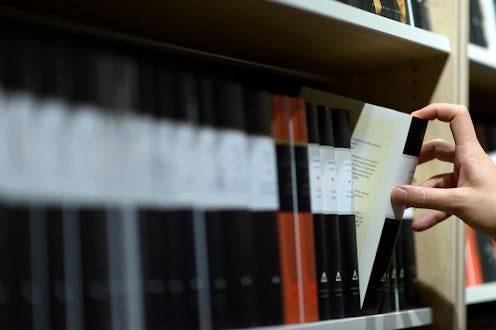
In what can unfortunately be filed under "Not that surprising," the Carnegie Medal's 2017 longlist exclusively highlights white writers. This year, though, British artists are fighting back, calling for a boycott of the UK's oldest and most prestigious award for Young Adult and children's literature.
In its 80-year run, neither the Carnegie Medal, nor its companion award, the Kate Greenaway medal for distinguished illustration, have been awarded to a writer of color. Sure, some of have been longlisted (a few have even made it onto the short list), but none have ever won the 5,000 euro prize.
What makes the honor particularly sought after is its influence on what is ultimately carried in schools. The Carnegie is conferred by upon authors by the Chartered Institute of Library and Information Professionals (CILIP); librarians across the UK are responsible for voting on and ultimately naming the top books. According to a 2015 CILIP report, 96.7 percent of UK librarians identify as white, a number almost 10 percent higher than the rest of Britain's workforce.
As part of the purse, winners receive 500 euros worth of their book, to donate to the library of your choice. Walk into most British libraries (and in many cases, American), and you'll see a display of Carnegie medal winners. If you want your books to spark change among young readers (and honestly, children's author doesn't?), the Carnegie Medal is essentially a fast-track to doing so.
In recent years, the Carnegie medal has stoked a reputation as an award that highlights what students are actually dealing with, whether it be depression, race, refugee status, or sexuality. But despite these heavy and, frankly, diverse topics, the Carnegie medal seems to be mirroring the cultural trend so many are already familiar with: Black writers writing about Black culture are ignored, while white writers writing about Black culture are revered.
Alex Wheatle, 2016 winner of the Guardian's children fiction prize, and Sunny Singh, a prominent YA writer and founder of the recent Jhalak prize for writers of color, are leading the charge for a Carnegie medal boycott. “There has to be collective action. It cannot just BAME (Black, asian and minority ethnic) writers against it, it has to be all authors," said Singh to The Guardian. "It’s all very well for already marginalised people to do a boycott, but if you are already excluded, what difference will it make to not enter?” Wheatle, meanwhile, has instructed his publishers not to submit his next book, out in 2018, for Carnegie medal consideration.
The award's shortlist will be announced mid-March, with the winner named at an awards dinner on June 19.